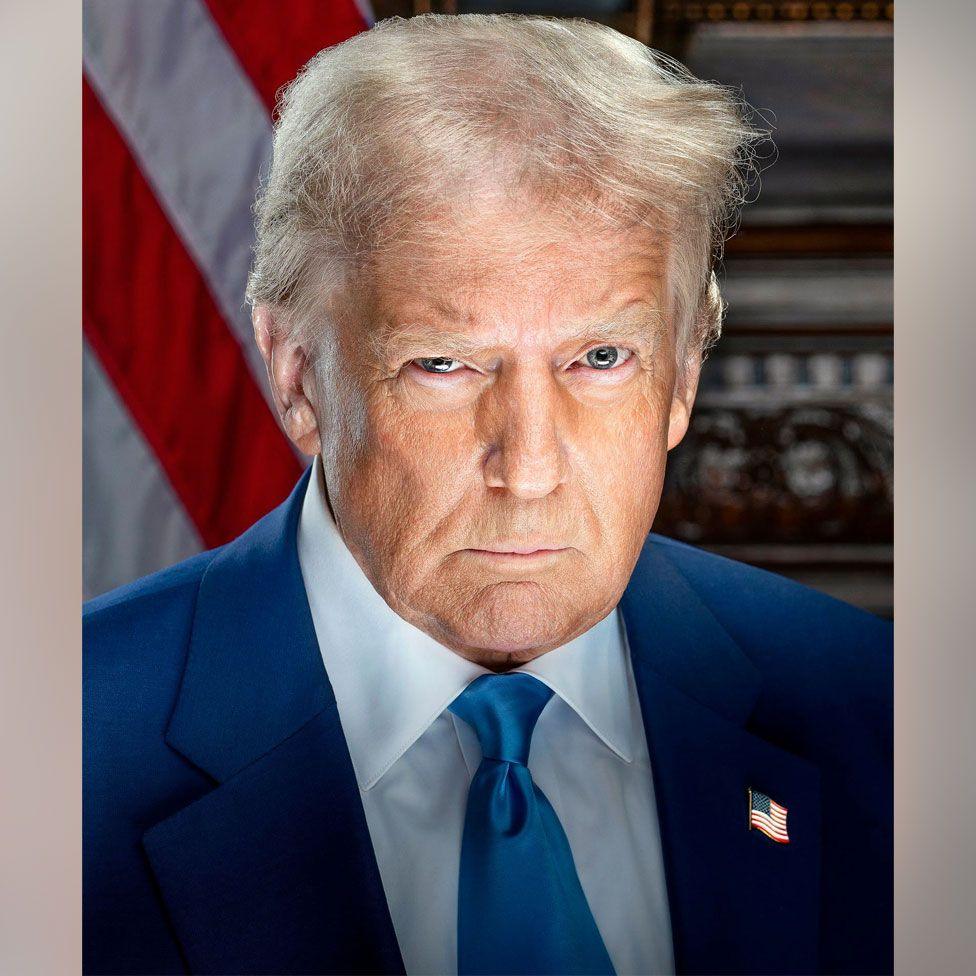Trump’s Focus on Nigeria: A Move to Support or Suppress?

ANALYSIS|Favour Rotimi
The U.S. President Donald Trump’s warning that Nigeria should “prepare for battle” if its government fails to protect Christians has reignited global discussion about Washington’s motives. Is the United States truly concerned about human rights in Nigeria — or is this a geopolitical move to reassert control as Africa’s biggest economy shifts away from Western dominance?
Trump’s focus comes at a time when Nigeria is redefining itself on the global stage, achieving milestones in oil refining, economic reform, and foreign partnerships. But as Nigeria’s global relevance grows, so does Washington’s unease.
Nigeria’s emergence as an industrial force can largely be credited to the Dangote Refinery, the largest single-train refinery in the world. With a capacity of 650,000 barrels per day, it’s transforming Nigeria from a crude exporter into a refined petroleum exporter — including to Europe and the United States.
This shift marks the end of decades of dependency on foreign refineries. For the first time, Nigeria is refining its own crude, controlling pricing, and keeping billions of dollars within its economy.
Also read Trump demolishes part of White House
The implications extend beyond business. Each refined barrel challenges Western dominance in Africa’s energy markets and reduces the global leverage of the petrodollar system. To Washington, that’s not just an economic disruption — it’s a strategic threat.
In recent months, three diplomatic flashpoints have exposed growing friction between Abuja and Washington:
1. Nigeria’s Rejection of a U.S. Military Base
Nigeria reaffirmed its policy against hosting foreign troops, rejecting a U.S. proposal to establish a military base in the country. The decision limited America’s strategic military reach in West Africa, a region critical to its counterterrorism and resource interests.
2. Refusal to Accept Deported Prisoners
Nigeria also declined a U.S. request to take in deported prisoners and Venezuelan nationals from American custody. The refusal was a bold assertion of sovereignty — an act that few countries dare when dealing with Washington.
3. Growing Nigeria-China Partnership
Finally, Nigeria’s deepening alliance with China has shifted the regional balance of power. Multibillion-dollar deals in energy, infrastructure, and defense are tying Africa’s largest economy closer to Beijing. This partnership strengthens China’s economic footprint and weakens Western monopoly on African development.
Collectively, these events bruised the U.S.’s diplomatic ego — pushing Washington to find new ways to reassert relevance in Abuja.
The U.S. has framed its renewed attention to Nigeria around Christian persecution and human rights abuses. Yet, the country’s internal conflicts — from ethnic clashes in Plateau State to insurgencies in the North-East — stem from deep socio-economic and political issues rather than purely religious divisions.
Also read Christian genocide: Tinubu to meet US President, Trump
Critics suggest that invoking religion serves a strategic purpose: to emotionally justify interference while masking deeper geopolitical interests. After all, many past tragedies in Nigeria’s history failed to attract this level of U.S. outrage. Why now — and why under Trump?
Across Africa, nations are asserting more control over their resources. From Ghana’s gold-for-oil policy to Ethiopia’s digital economy, the continent is redefining its relationships with global powers.
Nigeria stands at the center of this transformation — large enough to influence markets, rich enough to attract rivals, and strategic enough to alter the balance of power between the U.S. and China.
As the Dangote Refinery and similar projects flourish, the West’s traditional influence wanes. America’s renewed interest in Nigerian affairs could therefore be seen as a move to slow down this shift, using diplomatic pressure masked as moral concern.
President Bola Ahmed Tinubu faces a delicate challenge: maintaining Nigeria’s sovereignty without alienating its strategic partners.
To navigate this, three steps are crucial:
1. Strategic Restraint – Avoiding confrontational rhetoric or direct online exchanges with foreign leaders that could escalate tensions.
2. Smart Diplomacy – Offering limited cooperation with Washington on mutual interests like security, while defending Nigeria’s autonomy.
3. Internal Stability – Tackling insecurity, unemployment, and corruption decisively so that no foreign nation can use domestic instability as a pretext for interference.
This approach allows Nigeria to engage with all global powers — the U.S., China, and Europe — on equal terms, not as a dependent nation but as a sovereign player.
Donald Trump’s renewed focus on Nigeria could mark a turning point in U.S.-Africa relations. If America genuinely wishes to support Nigeria, it must replace control with collaboration — investing in infrastructure, trade, and innovation rather than dictating terms.
But if the intention is to suppress Nigeria’s rise and protect Western dominance, history shows such efforts are doomed to fail. Africa’s largest democracy has already proven its resilience.
Nigeria is no longer the sleeping giant of old. It is awake, refining its oil, rebuilding its economy, and redefining its global identity. The world is watching — and history will judge whether Trump’s new interest is a helping hand or a hidden fist.






